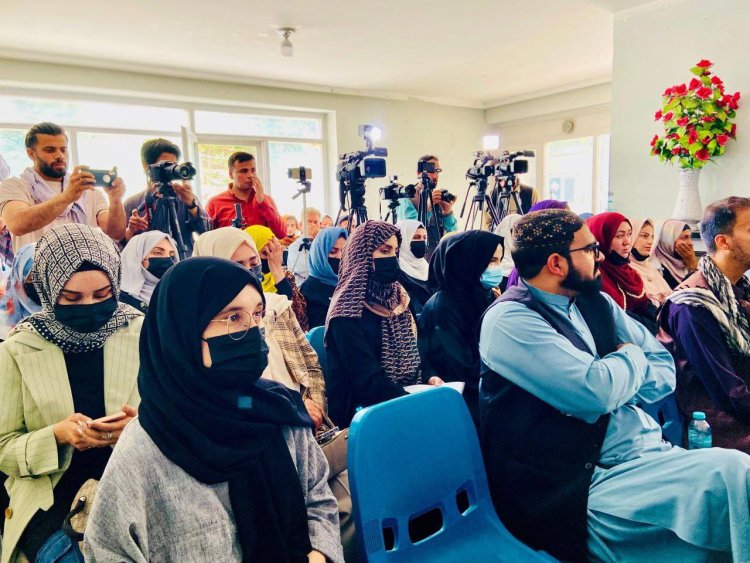From Work to Survival: The Bitter Turn in Afghan Women's Lives

With the Taliban’s ongoing bans on women’s work and education and the suspension of U.S. aid, the operations of dozens of international organizations in Afghanistan have come to a halt. As a result, many Afghan women who once held jobs say being pushed out of the workforce has had devastating effects on their economic, social, and psychological well-being — and that they experience a “slow death” every day.
Shazia — a pseudonym — is the daughter of a doctor and previously worked in the health sector with an organization called ADA. But for nearly six months, she has been unemployed.
She says losing her job has caused significant financial hardship, and she can no longer provide for her family’s daily needs without an income.
“I worked in various offices for five years, and my last job was with the ADA organization,” she says. “I earned 22,000 Afghanis a month, but due to financial difficulties and Taliban threats, the organization dismissed dozens of women, including me. Now there are no job opportunities, and my economic problems are getting worse by the day.”
She currently works as a basic nurse at a private clinic and says she endures extremely hard labor for very little pay just to keep her children from going hungry.
“My previous salary was much higher, but now I only make 5,000 Afghanis a month here — and that includes overnight shifts. It’s not enough to support my family. I have two children in private school, but I had no choice — I had to take this job.”
Other women who lost their jobs when NGOs shut down or were dismissed by the Taliban say they’ve been forced to turn to manual labor just to survive. Many have taken up tailoring, pastry-making, or carpet weaving to get by, but say life has become filled with hardship and constant struggle.
Maryam Omar Khel, a resident of Nangarhar, is one such woman. She lost her job in a recent wave of dismissals and has now turned to tailoring to support her family of four. She describes her life as full of difficulty and pain.
“I used to work for years as a teacher at Nazo Ana High School in Nangarhar,” she says. “But recently I was let go for reasons I still don’t understand. I’m facing severe financial problems, life has become difficult, and I worry about my own and my children’s future.”
She adds that due to project closures, financial constraints, and various excuses, many employees — both permanent and on contract — have been laid off.
Meanwhile, economist Mujib Rahman Darman says that the shrinking role of women in various sectors not only negatively affects household incomes but also has long-term, irreparable impacts on the country’s economy.
“Women play a crucial role in a family’s economic stability. Through their income, they can support and sustain their households,” he explains. “Unfortunately, many women have recently lost their jobs, and this has significantly impacted both family and community economic conditions.”
Women’s rights activists also emphasize the importance of women’s presence in society and call on the international community to help create job opportunities for Afghan women as a path to social improvement and national development.
This comes amid the recent suspension of operations by over 50 international organizations following the halt of U.S. aid to Afghanistan, which has left many — men and women alike — unemployed. At the same time, the Taliban have accelerated the process of dismissing government employees, especially women.
Following the Taliban’s decision to reduce administrative positions, thousands of workers — most of them women and primary breadwinners for their families — have lost their jobs.
